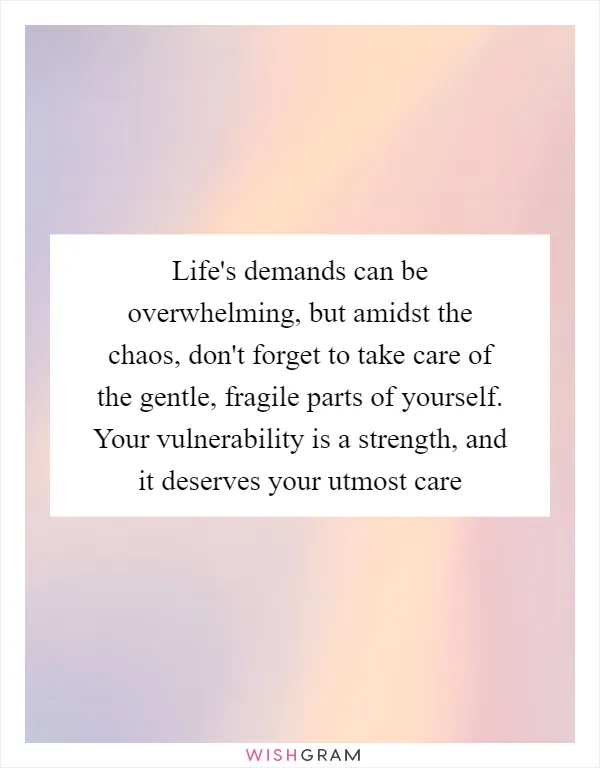Life's demands can be overwhelming, but amidst the chaos, don't forget to take care of the gentle, fragile parts of yourself. Your vulnerability is a strength, and it deserves your utmost care
Life's demands can often feel like a never-ending whirlwind, constantly pulling us in different directions. The pressures of work, relationships, and personal responsibilities can leave us feeling overwhelmed and exhausted. In the midst of this chaos, it is crucial to remember to take care of the gentle, fragile parts of ourselves.
Our vulnerability is often seen as a weakness, something to be hidden or ignored. However, it is important to recognize that vulnerability is not a flaw, but rather a strength. It is through our vulnerability that we are able to connect with others on a deeper level, to empathize and understand their struggles. It is through our vulnerability that we are able to grow and learn from our experiences.
Taking care of our vulnerability requires us to be gentle with ourselves. It means acknowledging our emotions and allowing ourselves to feel them fully, without judgment or criticism. It means giving ourselves permission to take breaks when we need them, to rest and recharge. It means setting boundaries and saying no when necessary, prioritizing our own well-being.
Self-care is not selfish; it is a necessary act of self-preservation. Just as we would care for a delicate flower, we must care for ourselves with the same tenderness and compassion. This means nourishing our bodies with healthy food, getting enough sleep, and engaging in activities that bring us joy and relaxation. It means surrounding ourselves with positive influences and seeking support when we need it.
In the midst of life's demands, it can be easy to neglect our own needs. We may feel guilty for taking time for ourselves or believe that we are not deserving of care. However, it is important to remember that we cannot pour from an empty cup. By taking care of ourselves, we are better equipped to care for others and fulfill our responsibilities.
It is also important to remember that self-care is not a one-time event, but rather an ongoing practice. It requires consistent effort and attention. Just as we would tend to a garden, we must continuously nurture and care for ourselves. This may involve seeking therapy or counseling, practicing mindfulness and self-reflection, or engaging in activities that promote self-growth.
